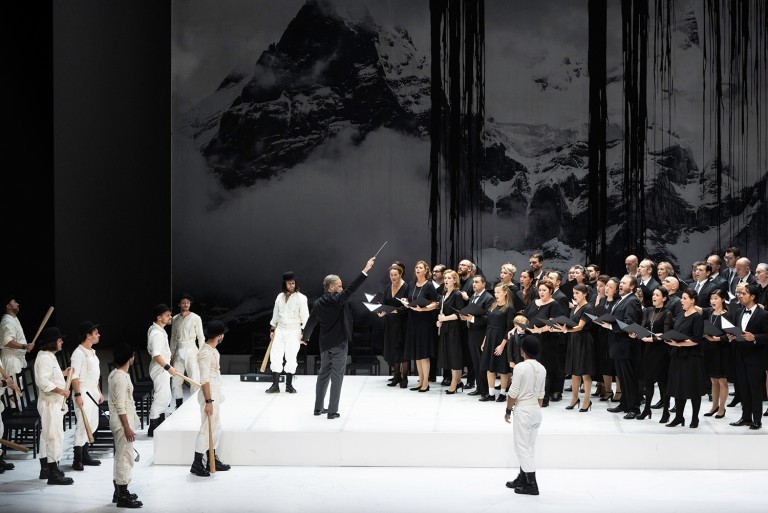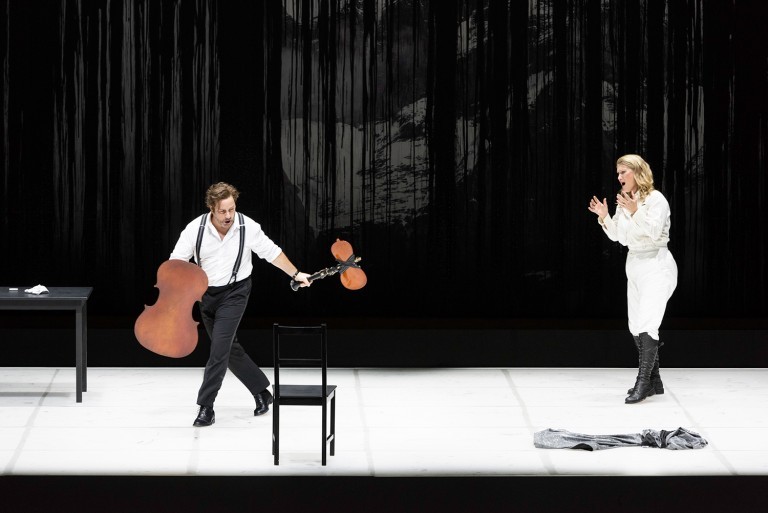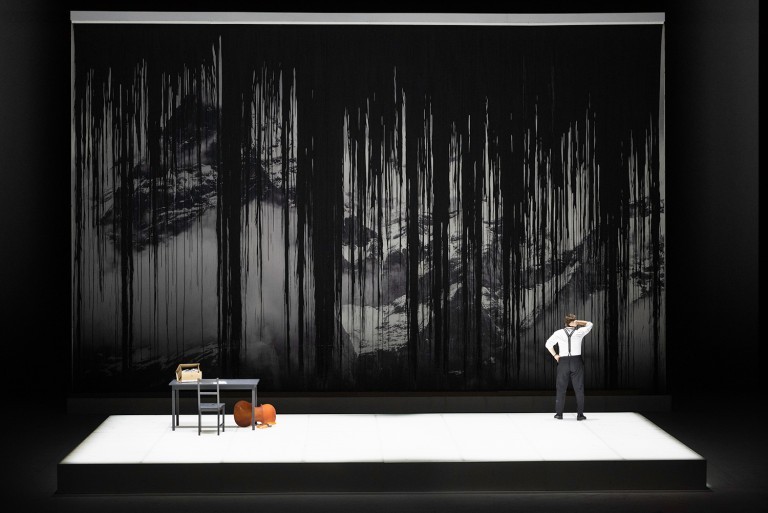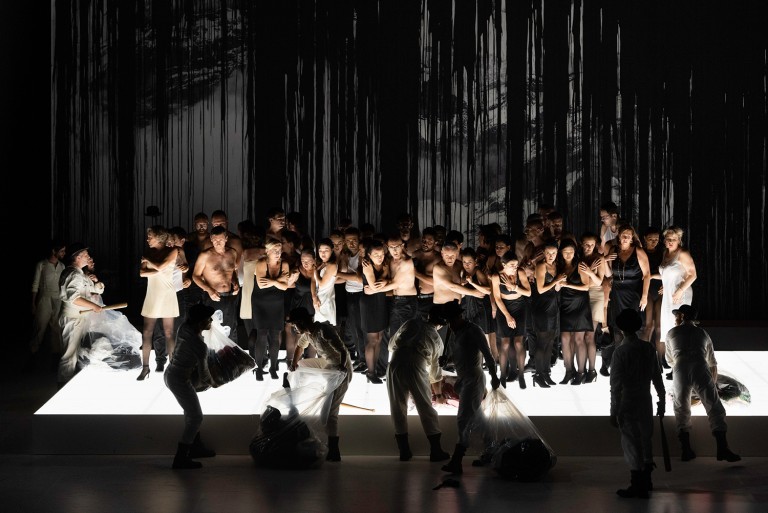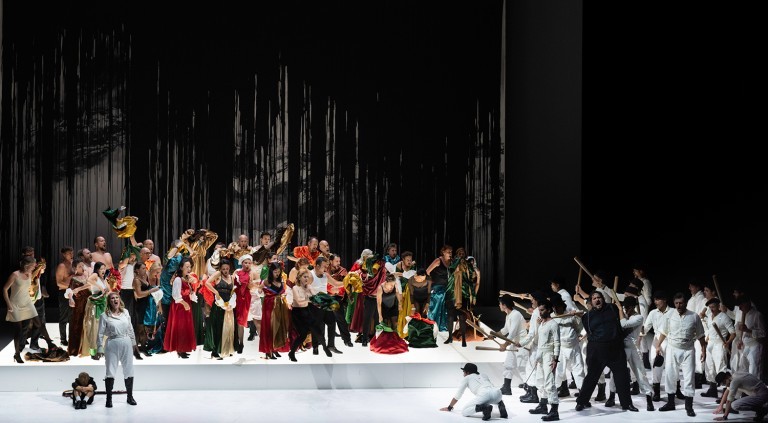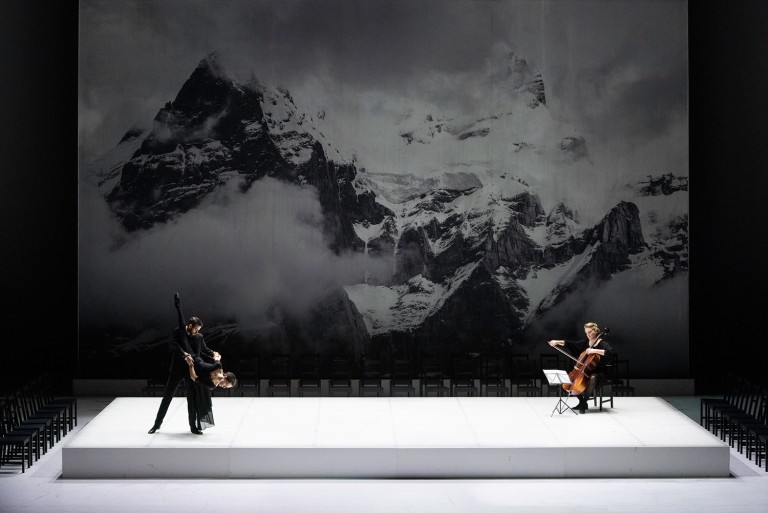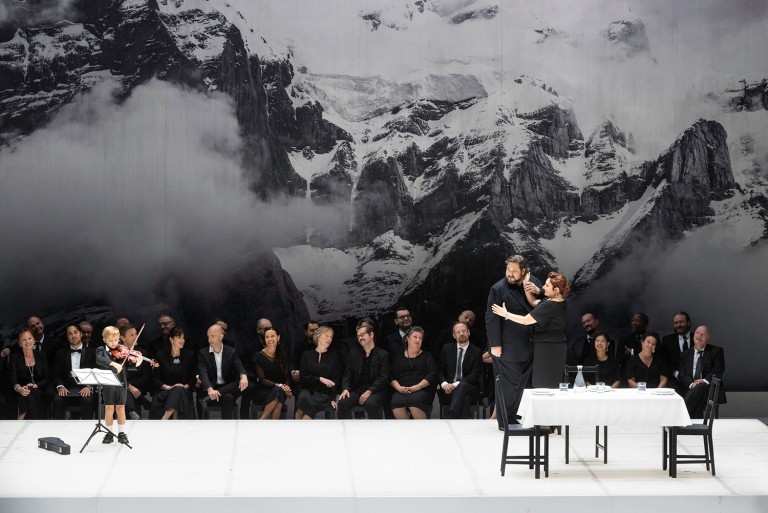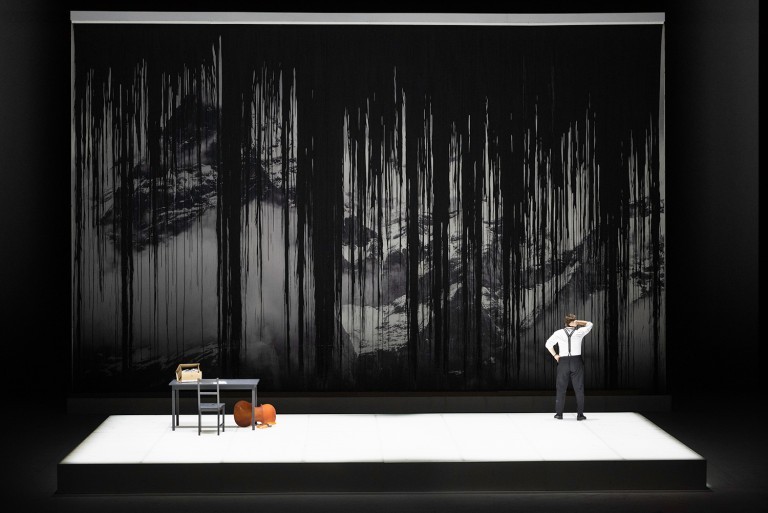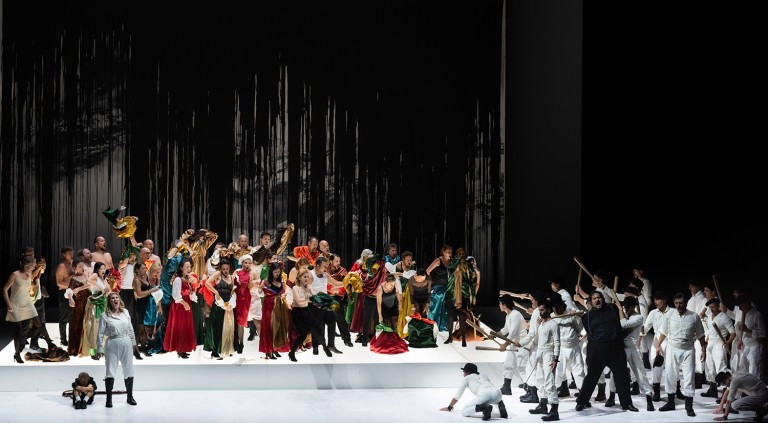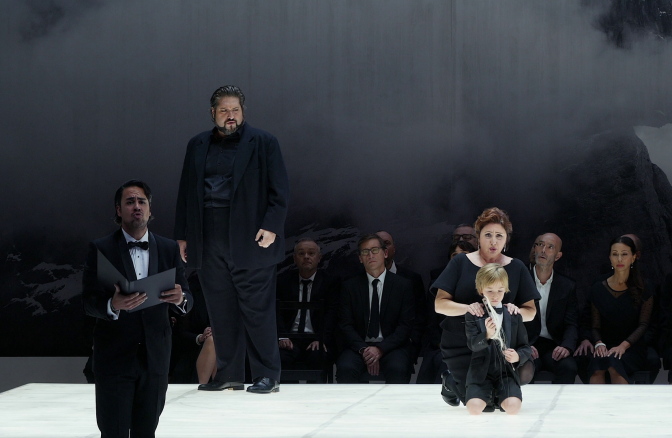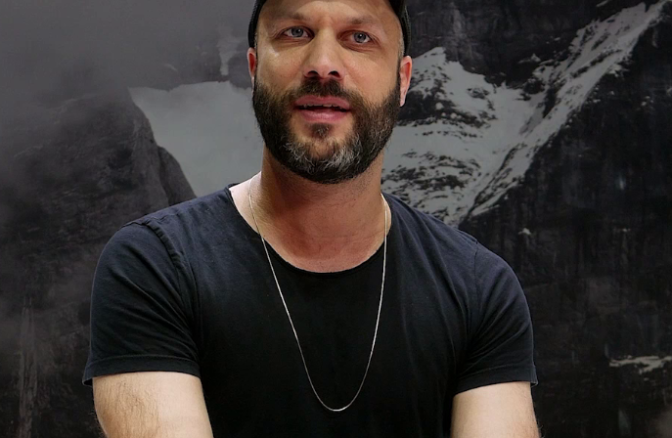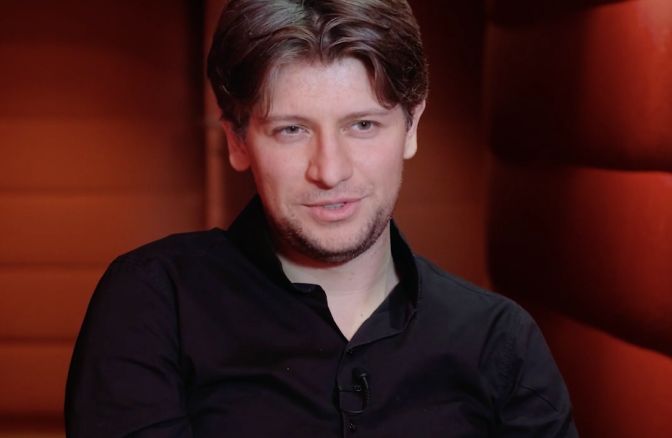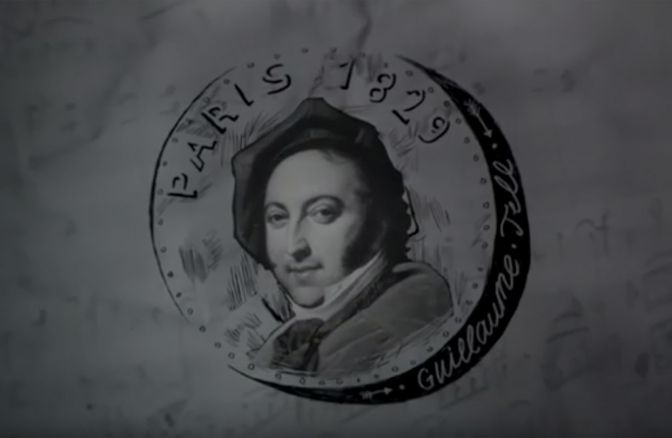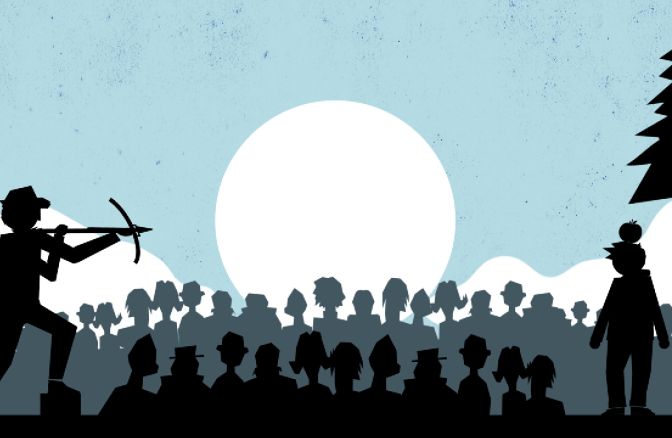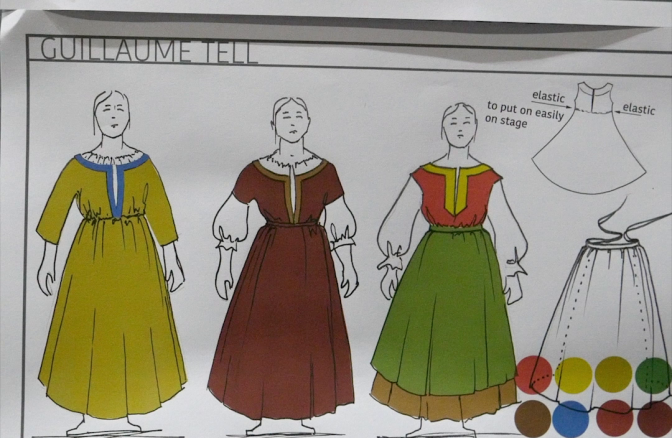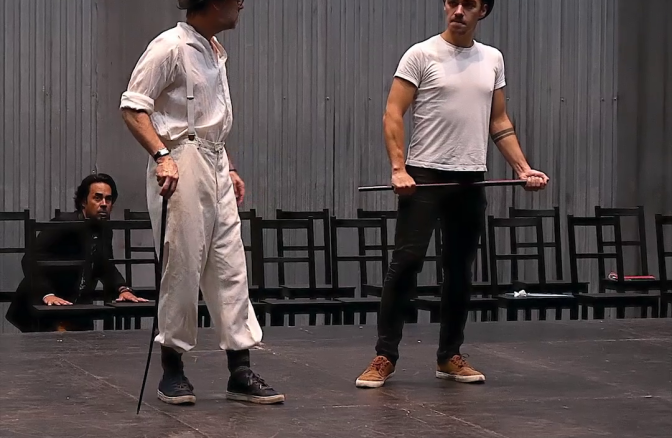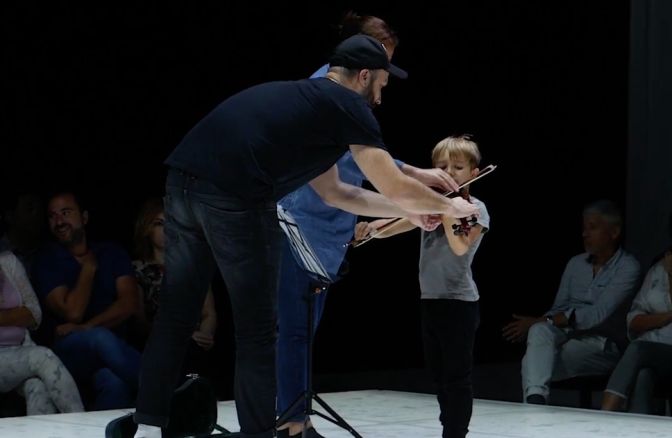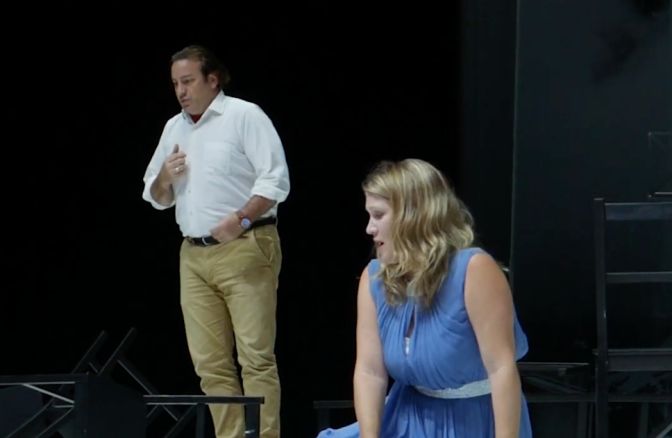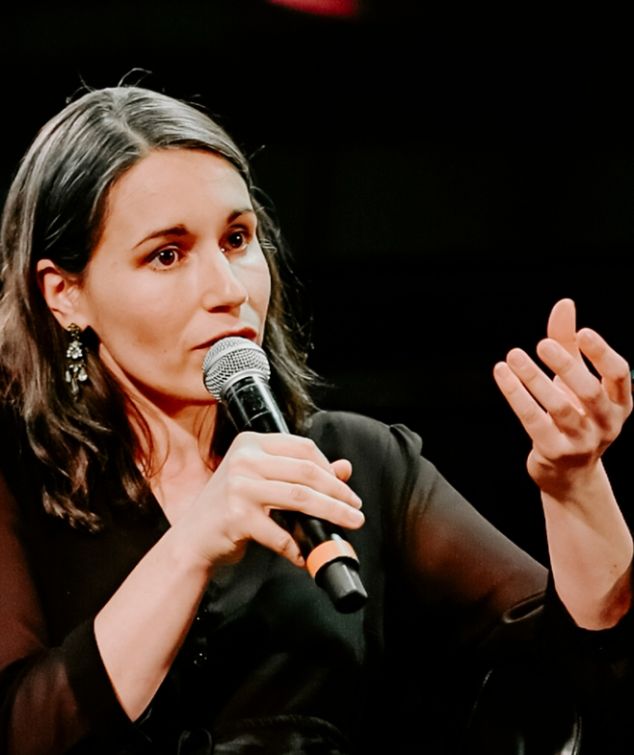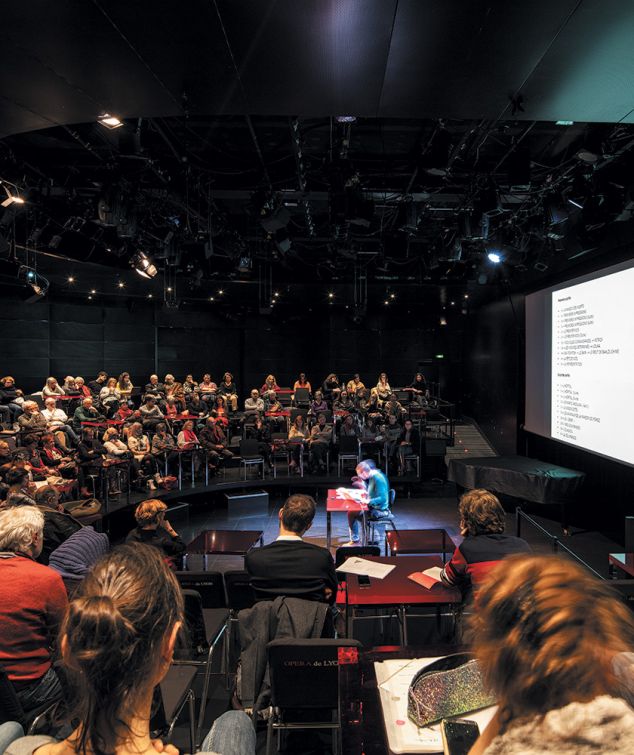Synopsis
In the Switzerland of 1307, William Tell rebels against Austrian tyranny and its representative, Governor Gessler, awakening his peers’ political conscience and aspirations for liberty. Among them, the highlander Arnold who, despite being in love with Mathilde, the Governor’s sister, joins up with the man who was to become the hero of Swiss independence.
A universal resonance
For his final opera, commissioned by Paris, which premiered in 1829 and was praised by Wagner, Rossini also launched a revolution, both in his subject matter and in his way of dealing with it. For William Tell leaves behind the pathways the Italian master had taken previously– between opera buffa and seria – and sketches out the contours of operas to come. To the political and ideological dimension of this ode to liberty and to people’s right to self-determination, the composer added the breath of an ambitiously spectacular aesthetic, but which conceals neither profundity nor thought, thus announcing the great works of Verdi and Wagner. This grandiose opera about the constant struggle of man against barbarity was to become the rallying cry of the 1830 Revolution. As for Tobias Kratzer’s universal, timeless staging, it continues to make it chime wonderfully with the present.
Opera in four acts, 1829
Libretto by Victor Joseph Etienne de Jouy and Hippolyte Louis Florent Bis
After the play by Friedrich von Schiller
New production
As a coproduction with the Staatstheater of Karlsruhe
